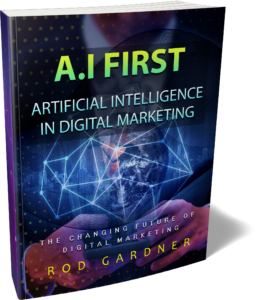How Google is Getting Smarter and What That Means for Marketers

A while ago now, Google announced that it had become an AI-first company. While that might sound like meaningless marketing babble, the truth is that this determination actually has HUGE potential repercussions for marketers, businesses, and SEO.
Firstly, what does Google mean by this? Meet the New, Smarter Google
You might think of Google as a search-first company. The first product that Google provided was a search engine and this is still what most of us associate with the company.
Traditionally, Google’s search engine did not work much like an AI. Rather, search worked by attempting to match search terms with the content in an article.
This is why the advice for SEOs was to insert lots of key phrases into their articles, so that Google’s spiders could read that content and quickly identify that it would be a good match for what the person was searching for.
As we all know, this didn’t work out perfectly for Google. Lots of unscrupulous “marketers” abused the system by inserted hundreds of search terms into every article, which in turn meant the content Google would show to the user would be garbled and unreadable.
That’s why, over time, Google has begun to work more and more like an AI.

Most of us use Google every single day, and still it finds ways to surprise us. Have you ever gone to search for something in Google, only to find that it does something almost creepily intelligent?
For example, you might have noticed lately how Google will suggest search terms for you and often get them right. If I search “Ninja Turtles history” and then later start typing “Names of…”, there is a good chance that Google will suggest I finish that query with “…the Ninja Turtles.” Google is now smart enough to recognize that we tend to search more than once around the same topic, and it can help us to save time typing out questions as a result. At the same time, this also provides some encouragement as to what to search, thereby keeping users on Google for longer and benefiting the search giant too.
But take a moment to reflect on just how impressive this is really. Not only has Google understood that you are likely to be looking for more things related to your first search, but it has also understood that the Ninja Turtles have names – that they are a group of fictional characters.
How can it do this? Partly it comes down to a very powerful new feature of the algorithm called rankbrain.
Google Is Getting Smarter, A.I and Machine Learning is Changing The Future of Search Engine Optimisation
Artificial intelligence and machine learning have the potential to completely change the face of internet marketing, rendering many older strategies obsolete even.
A smarter Google requires smarter marketing!
Google is getting smarter all the time, and is becoming increasingly adept at second guessing users and knowing how to provide them with useful answers. This changes the game for internet marketers too though, who now need to think in terms of synonyms and related terms, instead of just repeating the same phrase over and over!
To make it easy, I’ve put together a step-by-step guide that will show you exactly how it’s done…
Artificial Intelligence in Digital Marketing
4 Ways to Future proof Your Website
AI-driven search and digital marketing is just around the corner. So too are newer devices, such as folding phones, and faster-than-ever connections via 5G.
As a webmaster or internet marketer, your work is never finished when it comes to maintaining your website and ensuring it works as it should. In this post, we’ll look at four things you can do right now to futureproof your website and to protect it against future change.
Responsive Design
Of course, your website should already have a responsive design. But if you want to make your site as futureproof as it possibly can be, then it should be really responsive. Folding phones are just around the corner, and these will be used by countless people to view web pages. Don’t think they will catch on? No one thought big smartphones would either!
Your website needs to not only look great on a huge range of different devices, but also to be able to change size in real time. If your theme essentially switches between two versions for large and small sites… that’s not good enough!
Smarter Images
Google looks at images a little right now, paying most attention to the alt-tags and the file-names. In the not-too-distant future though, it will also be able to look at the actual content of the images. This will be possible thanks to machine learning which will give us advanced computer vision.
We can already see this in products like Google Lens, which can tell us things about objects we point our cameras at. Imagine that functionality baked into Google, and you have an even more powerful form of search!
Wiser Wording
Google is getting smarter and smarter all the time. Not only does that mean it’s getting better at discerning high quality and low quality content, but it also means that it’s getting better at understanding context and meaning. Google doesn’t just look for content matches any more, but actually understands what users are looking for, and can find answers within your text.
Google wants more people to search using voice through Assistant, which means we need to write using natural language and semantic markups to help it find the important parts of our content.
Media Rich Design
While you might not want to make any changes like this just yet, it will make sense in the next few years to start adding richer media to websites. As more and more people start using 5G, loading times will get faster the world over. That in turn means that a video or large image will have less negative impact on page load speeds.
There’s no requirement to add large animated backgrounds, or crisp HD images, but seeing as your competition might… it certainly can’t hurt either!
Don’t do this yet, but have a think about how you could upgrade your site for faster connections and then you’ll be ready to embrace this new technology.
Do all this, and your website will survive the coming years with no problem!





